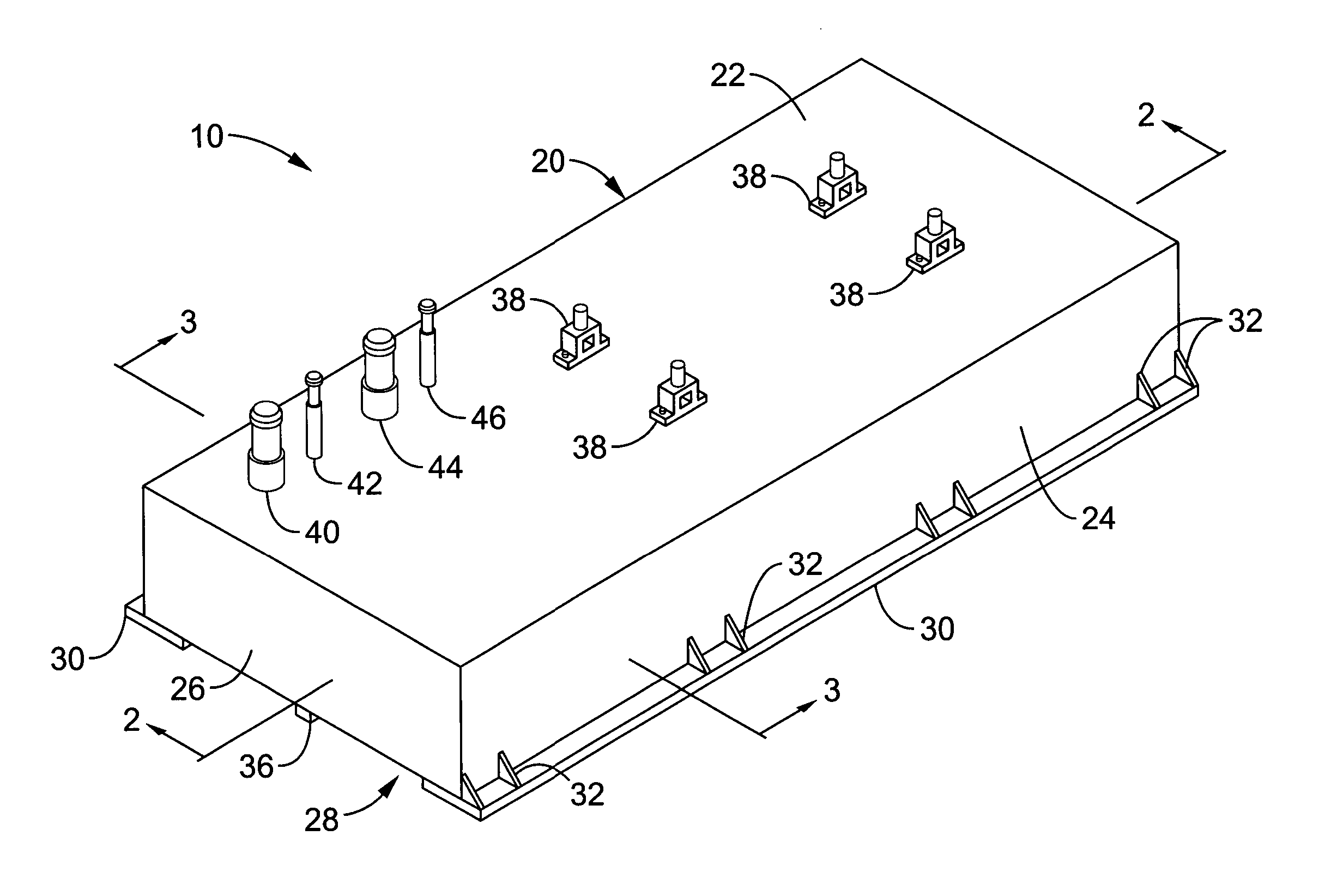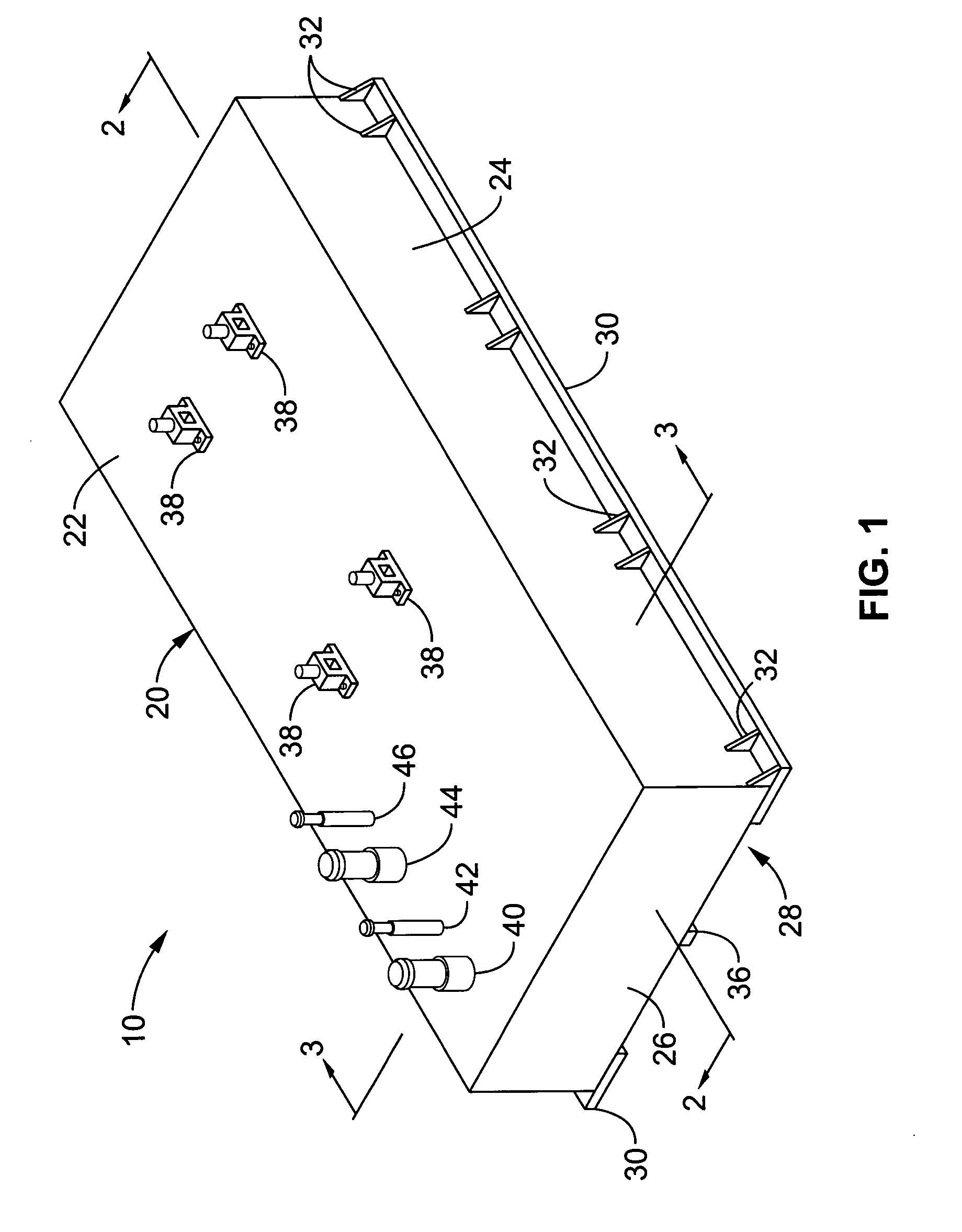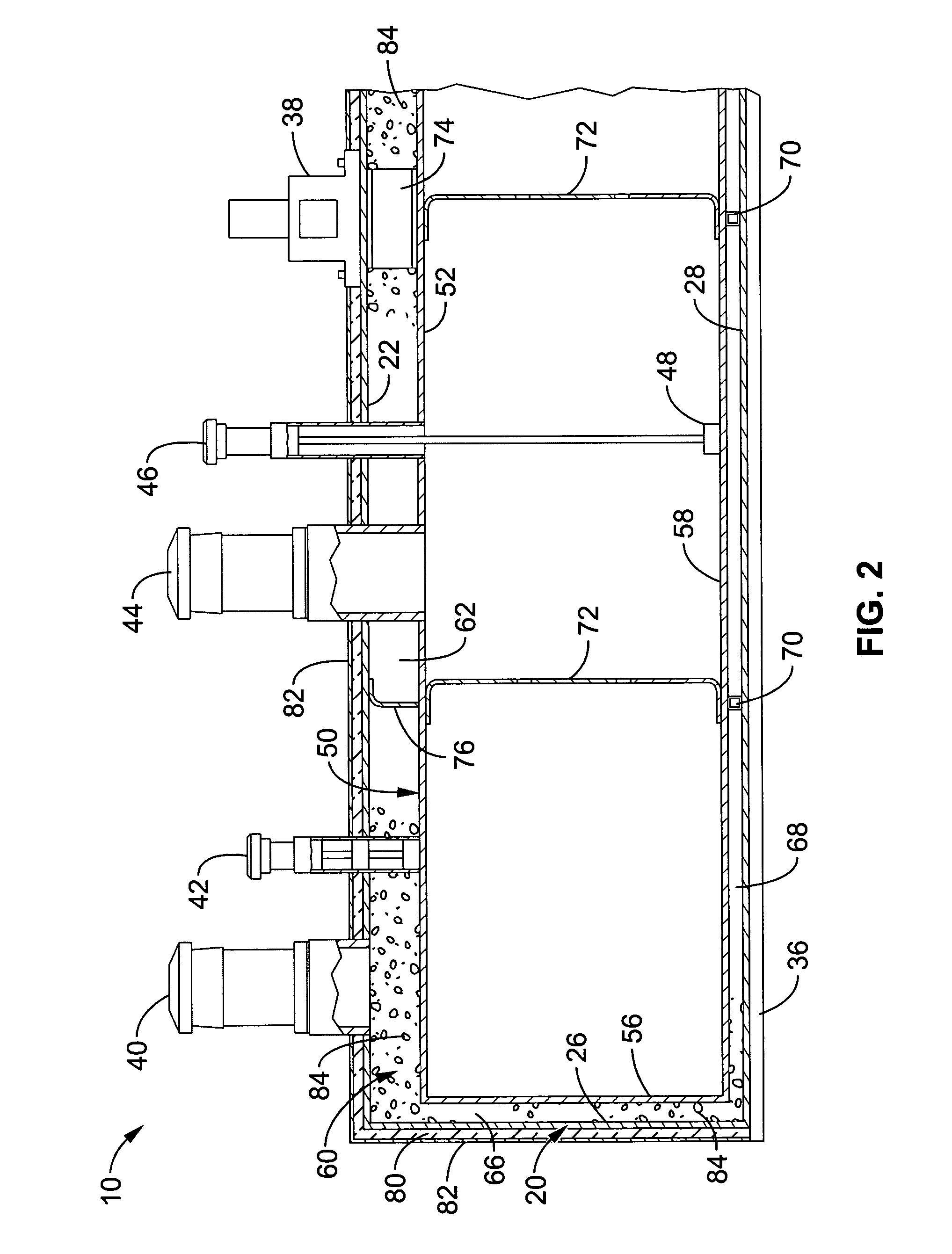Fire resistant base tank for mounting a generator
a base tank and generator technology, applied in the direction of packaging foodstuffs, container discharge methods, packaging goods, etc., can solve the problems of increasing the cost and complexity of installation, limiting the equipment that may be used for positioning, and increasing the footprint of the base tank
- Summary
- Abstract
- Description
- Claims
- Application Information
AI Technical Summary
Benefits of technology
Problems solved by technology
Method used
Image
Examples
Embodiment Construction
[0038] Referring more specifically to the drawings, for illustrative purposes the present invention is embodied in the apparatus generally shown in FIG. 1 through FIG. 5. It will be appreciated that the apparatus may vary as to configuration and as to details of the parts, and that the method may vary as to the specific steps and sequence, without departing from the basic concepts as disclosed herein. All joints are typically made with welds unless otherwise specified.
[0039]FIG. 1 is a perspective view of the exterior of a fire resistant base tank assembly 10 before a fire resistant coating (shown in FIG. 2 and FIG. 3) is applied. Details of tank components such as ports for instrumentation, fuel supply, fuel return and venting, brackets for lifting and securing, and tank cut outs for electrical connections, as are known in the art, are omitted for clarity. Base tank assembly 10 comprises an outer tank 20 and an inner tank 50 which are positioned and configured as will be more full...
PUM
 Login to View More
Login to View More Abstract
Description
Claims
Application Information
 Login to View More
Login to View More - R&D
- Intellectual Property
- Life Sciences
- Materials
- Tech Scout
- Unparalleled Data Quality
- Higher Quality Content
- 60% Fewer Hallucinations
Browse by: Latest US Patents, China's latest patents, Technical Efficacy Thesaurus, Application Domain, Technology Topic, Popular Technical Reports.
© 2025 PatSnap. All rights reserved.Legal|Privacy policy|Modern Slavery Act Transparency Statement|Sitemap|About US| Contact US: help@patsnap.com



